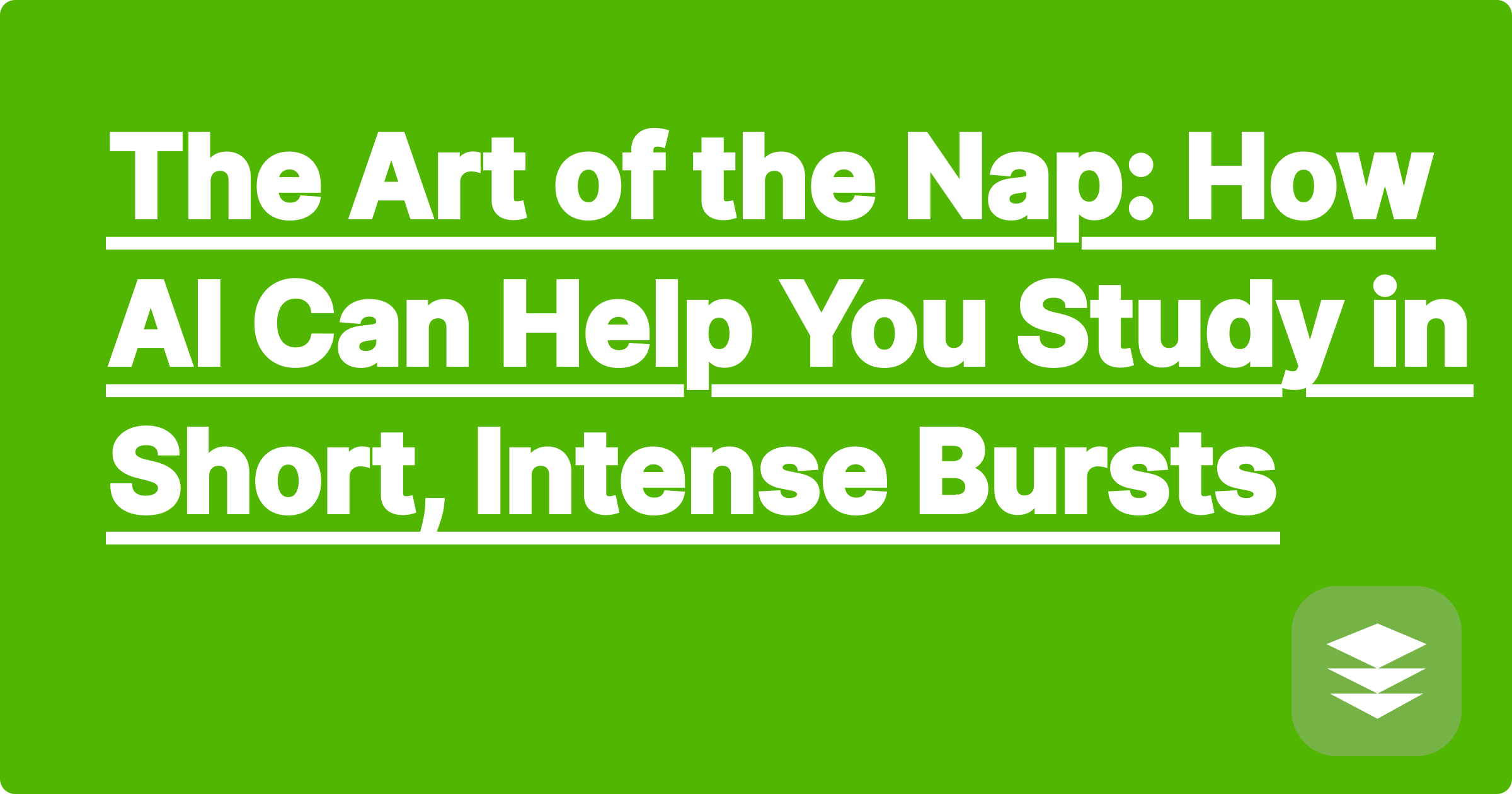
As a student, your most common complaint is probably, "I just don't have time to study." You look at your schedule and see no big, open blocks of 2-3 hours. So, you don't study at all, and the work piles up. This is a trap. The secret to productive studying isn't finding huge blocks of time; it's about effectively using the small pockets of "in-between" time that you already have. This is the power of micro-learning techniques.
What if you could have a meaningful study session in the 15 minutes between your classes, or the 20 minutes you spend on the bus? Research shows that these short, focused bursts of learning can be incredibly effective for memory consolidation, especially when you have the right tools. The problem with traditional studying is that it's not designed for this. You can't pull out a massive textbook and get anything meaningful done in 15 minutes. You need to study in short bursts with content that is prepared for it.
An AI assistant like GPAI Cheatsheet is the perfect tool for enabling micro-learning. It can take a huge amount of information and distill it into a bite-sized format that is perfect for a quick session.
The Workflow for a "Study Sprint":
[Image: A student sitting at a coffee shop, quickly reviewing a concise "micro-cheatsheet" on their phone during a short break between classes. Alt-text: A student using AI for micro-learning techniques to study in short bursts.]
This method is powerful because it's sustainable. It's much easier to find three 15-minute slots in your day than it is to find a single 45-minute block. By turning these small pockets of "dead time" into productive learning moments, you dramatically reduce the need for long, exhausting cram sessions. The note taker aspect of the cheatsheet keeps a record of what you've covered, ensuring you can pick up right where you left off.
This phrase isn't just a metaphor. By studying in short, intense bursts followed by periods of rest (like walking to your next class or just relaxing), you are giving your brain the time it needs to start consolidating those memories—a process that sleep research has shown is critical for learning. You are working with your brain's natural rhythms, not against them.
A: It's not enough time to learn a completely new, complex topic from scratch. But it is a perfect amount of time to review and reinforce concepts you have already been introduced to. The cumulative effect of these daily micro-reviews is enormous.
A: Content that is "atomic" and self-contained works best. This includes:
Stop thinking you need a huge, empty block in your calendar to be productive. The pockets of time are already there, waiting for you. By using AI to create perfectly portioned "learning snacks," you can turn your busiest days into your most productive ones, one 15-minute sprint at a time.
[Start your first micro-learning session today. Use GPAI to create a bite-sized cheatsheet. Sign up for 100 free credits.]
How to Use GPAI as Your Personal 'Fact-Checker' Before You Speak Up in Class
The 'Rubber Duck Debugging' Method, with an AI That Actually Talks Back
I Have a Terrible Memory': Using an AI Notetaker as a Prosthetic Memory
The Art of the Nap: How AI Can Help You Study in Short, Intense Bursts
What Your Choice of AI Tool Says About Your Personality
How to Build a 'Career Moat' Using Your AI-Generated Knowledge Base
Surviving a Professor Known for 'Trick Questions' with an AI Test Generator
Is This Concept on the Exam? Using AI to Analyze Past Tests
The Ultimate 'Pre-Lecture' Ritual: How to Prime Your Brain in 5 Minutes
Did I Plagiarize Myself?': Using an AI to Rephrase Your Own Previous Work